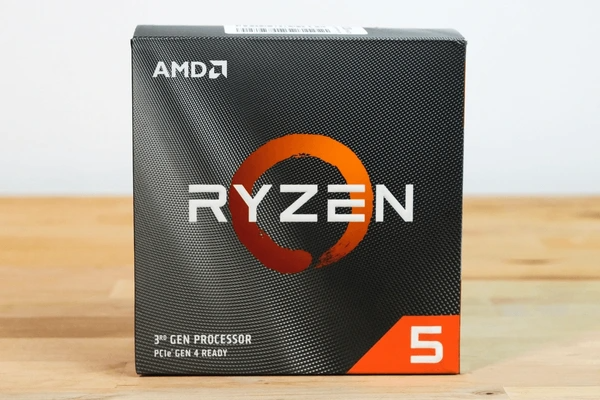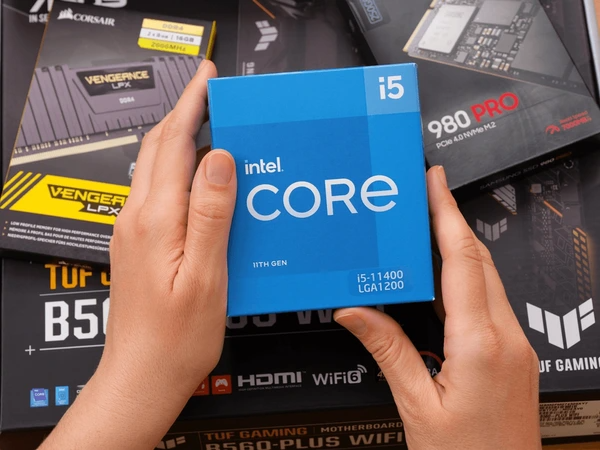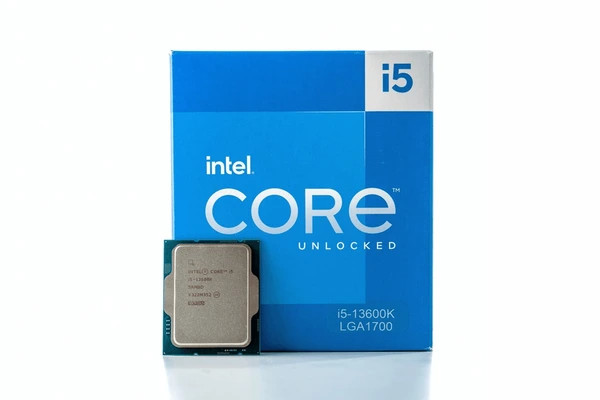
Choosing between AMD’s Ryzen 5 and Intel’s Core i5 processors can be tricky, especially with both offering powerful performance in mid-range desktops and laptops. These CPUs target gamers, content creators, and professionals looking for a strong balance between price, speed, and multitasking. This article breaks down the differences between AMD Ryzen 5 vs. Intel Core i5 across key areas—speed, cores, architecture, integrated graphics, and real-world use cases—to help you decide which chip is the better fit for your next PC build or laptop.
AMD Ryzen 5 vs. Intel i5 – Which is right for you? Eureka Technical Q&A breaks down their speed, core count, and real-world use cases, helping you choose the best processor for gaming, productivity, or everyday performance.
Core Count and Thread Performance
| Processor Series | Core/Thread Count | Multithreading |
|---|---|---|
| AMD Ryzen 5 | Typically 6 cores / 12 threads | Yes (Simultaneous Multithreading) |
| Intel Core i5 | 6 to 14 cores (Hybrid: P+E) | Yes (Hyper-Threading on P-cores only) |
Modern Ryzen 5 processors (like the 5600X or 7600) use a consistent 6-core, 12-thread setup, ideal for multitasking and gaming. Intel’s newer i5 chips (like the 12600K or 13600K) use hybrid architecture, combining Performance cores (P-cores) and Efficiency cores (E-cores)—which can offer better multitasking performance in newer workloads.

Clock Speed and Boost Performance
| Processor | Base Clock | Max Boost Clock |
|---|---|---|
| Ryzen 5 7600 | 3.8 GHz | Up to 5.1 GHz |
| Core i5-13600K | 3.5 GHz (P-core) | Up to 5.1 GHz (P-core) |
Intel chips often have higher out-of-box boost clocks, but Ryzen 5 CPUs offer more consistent performance at lower power draws. Intel’s turbo speeds often lead in burst-heavy tasks, while AMD holds its own in sustained workflows.

Gaming and Productivity Benchmarks
- Gaming: Both CPUs perform exceptionally well in 1080p and 1440p gaming when paired with a decent GPU. Intel’s hybrid core advantage may offer slightly better FPS in CPU-bound games, but Ryzen remains highly competitive.
- Content Creation: Intel’s extra cores and hybrid setup may give it a slight lead in video editing and rendering tasks, especially with the Core i5-13600K.
- Multitasking: Ryzen 5’s SMT (Simultaneous Multithreading) allows smooth performance under multitasking, while Intel’s efficiency cores handle background tasks efficiently.
Integrated Graphics
| Feature | Ryzen 5 (G-series only) | Intel i5 (with iGPU) |
|---|---|---|
| Integrated GPU | Radeon Vega Graphics | Intel UHD or Iris Xe |
| Gaming Performance | Better for light gaming | Adequate for office use |
Only Ryzen models with a “G” suffix (like Ryzen 5 5600G) include integrated graphics. Intel i5 chips typically come with Intel UHD or Iris Xe, suitable for media and basic gaming. If you need an iGPU, double-check the model, especially for Ryzen.

Power Efficiency and Thermals
- AMD Ryzen 5 chips are known for efficient performance and lower TDP, especially on the AM5 platform.
- Intel i5 chips, while more powerful in some use cases, run hotter and may require better cooling, particularly the unlocked “K” models.
Platform and Compatibility
- AMD Ryzen 5 (AM5/AM4): Offers more long-term socket support, especially for budget-conscious upgrades. AM5 also supports DDR5 and PCIe 5.0.
- Intel i5 (LGA1700): Compatible with both DDR4 and DDR5, giving users flexibility during transition builds.

Use Case Comparison
Both AMD Ryzen 5 and Intel Core i5 processors are designed to cater to a wide range of use cases, from general computing to more demanding tasks. AMD Ryzen 5 processors are particularly noted for their balance of performance and price, making them suitable for gaming, content creation, and other intensive applications. On the other hand, Intel Core i5 processors are also popular for their reliability and efficiency, often preferred in scenarios where power consumption and thermal output are critical considerations.
| Use Case | Best Choice |
|---|---|
| Gaming (1080p/1440p) | Intel i5 (slight edge) |
| Content Creation | Intel i5 (more threads) |
| Office & Everyday Tasks | Ryzen 5 (efficient & cool) |
| Budget PC Builds | Ryzen 5 (value-driven) |
| Future-Proofing | AMD Ryzen 7000 series |
| Streaming and Multitasking | Both are solid choices |
FAQs
Intel i5 may deliver slightly higher FPS in some titles, but both provide smooth gaming performance when paired with a good GPU.
Generally, yes. Ryzen chips are more power-efficient, leading to lower heat output, especially in compact builds.
Yes. The combination of P-cores and E-cores in newer i5 chips offers better task distribution, especially when running apps in the background.
Yes. AMD offers longer socket support (especially with AM5), making Ryzen a good choice for future upgrades.
No. Only models with a “G” (like 5600G) include built-in Radeon graphics. Standard Ryzen 5 CPUs require a dedicated GPU.
Conclusion
Both AMD Ryzen 5 and Intel Core i5 deliver excellent performance for the money, with small differences depending on your needs. Intel i5 holds a slight edge in gaming and content creation with its hybrid architecture and raw performance, while Ryzen 5 offers better power efficiency, cooler operation, and longer upgrade support.
If you prioritize raw speed and multitasking, go with Intel. If you’re building on a budget or want a cooler, quieter system, Ryzen 5 is a fantastic pick. Either way, you’re getting one of the best mid-range CPUs available today.
To get detailed scientific explanations of AMD Ryzen 5 vs. Intel i5, try Patsnap Eureka.


